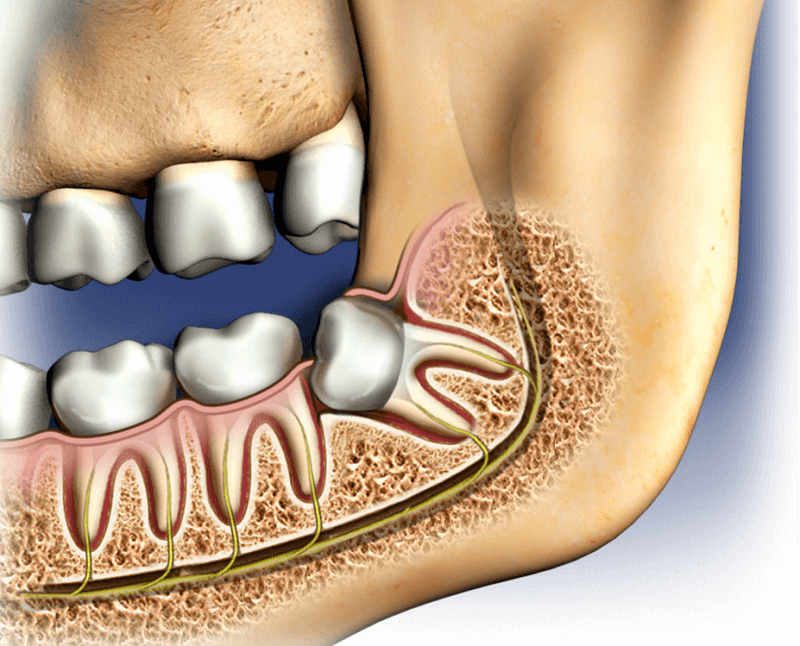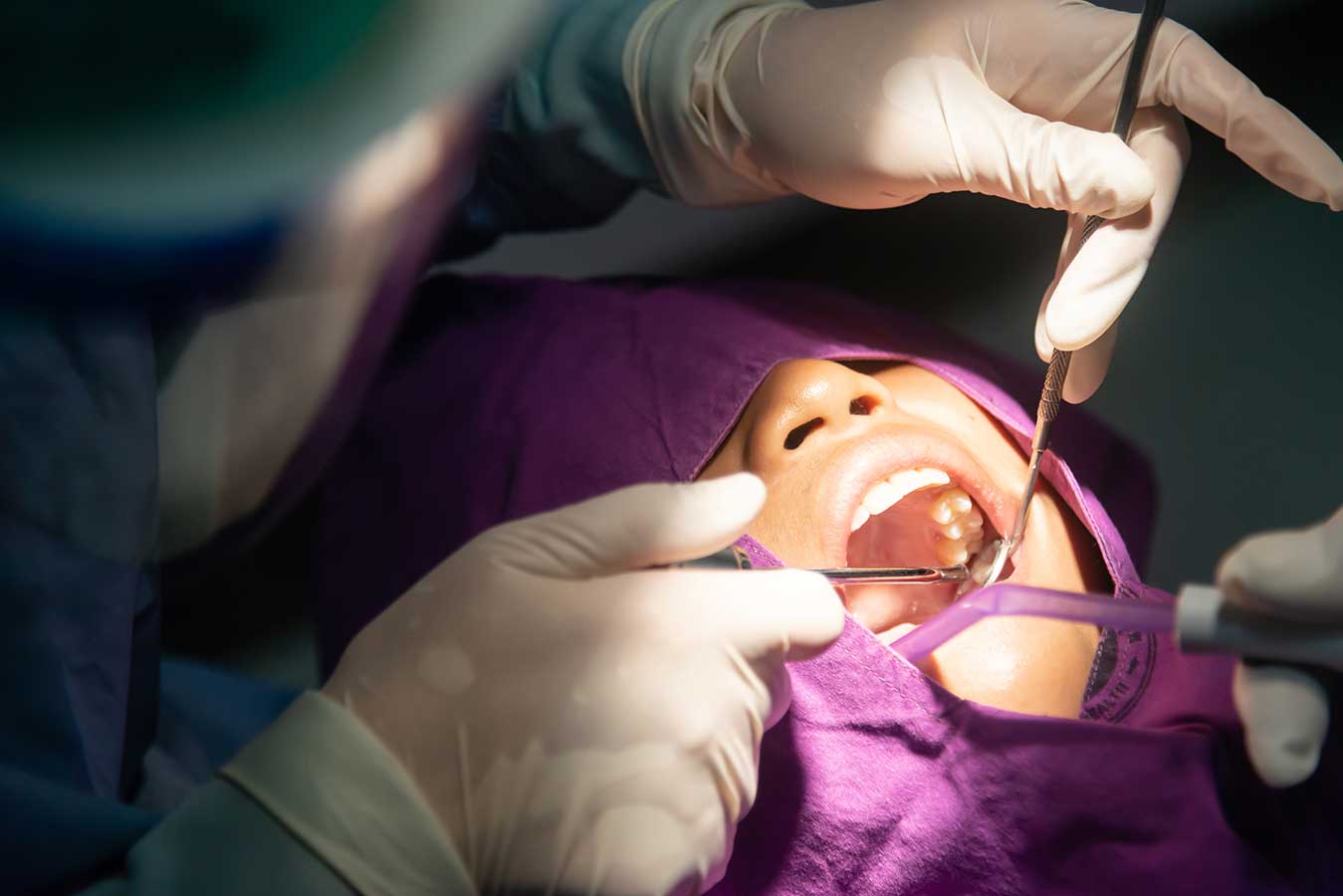Experienced Dentists
Experienced Dentists
Blog Article
Exploring Different Sedation Options for a Comfortable Knowledge Teeth Removal Experience

Regional Anesthetic
Local anesthesia is a generally utilized technique for numbing details areas of the mouth throughout wisdom teeth extraction procedures. By administering a regional anesthetic, such as lidocaine, a dental professional can make sure that the client continues to be comfy and pain-free throughout the extraction procedure. Local anesthesia works by briefly blocking the nerves in the mouth, preventing them from sending pain signals to the brain. This allows the dental professional to carry out the removal without causing any kind of discomfort to the patient.
One of the key benefits of neighborhood anesthetic is its targeted numbing impact, which suggests that just the certain location being dealt with is influenced. This local method decreases the risk of systemic side impacts and enables for a quicker recovery post-procedure. wisdom teeth removal aspendale. In addition, local anesthetic is thought about to be a safe and routine technique in dental care, with very little risks included when provided by a skilled specialist
Laughing Gas

Once the mask is eliminated, the effects of the gas use off quickly, allowing people to resume their regular tasks without remaining sedative effects. Nitrous oxide is ideal for people of all ages, making it a flexible sedation choice for wisdom teeth extractions and other dental procedures.
Oral Sedation
:max_bytes(150000):strip_icc()/Health-GettyImages-200565386-007-c582644914054c7897e8b4140b0b8c11.jpg)
Unlike intravenous sedation, dental sedation does not require injections or needles, making it a more comfortable option for people with a worry of needles. Furthermore, dental sedation is thought about safe and reliable when administered by trained dental specialists.
IV Sedation
Administered intravenously by experienced clinical professionals, IV sedation is an effective approach made use of to generate a regulated state of deep relaxation and unfamiliarity during dental treatments. Unlike oral sedation, which can be unpredictable in its effects, IV Continued sedation enables precise control over the degree of sedation, making it a perfect option for intricate treatments like wisdom teeth removals.
Throughout IV sedation, a sedative drug is supplied directly into the blood stream via a capillary, permitting it to work swiftly and successfully. This technique ensures that the client remains comfortable and not aware of the treatment while still preserving important features such as breathing and heart rate.
Among the main benefits of IV sedation is its capability to provide a much deeper level of sedation compared to other techniques, making it especially ideal for people with high levels of anxiousness or those undergoing extensive oral work. Additionally, the impacts of IV sedation normally diminish progressively after the treatment, lowering the chance of grogginess or remaining adverse effects. Overall, IV sedation provides a safe and efficient alternative for making sure a comfy and trouble-free experience during knowledge teeth removal.
General Anesthesia
Having discussed the benefits of IV sedation for knowledge teeth extraction, the utilization of basic anesthetic provides an alternate choice for people requiring a deeper level of unconsciousness during oral treatments. General anesthesia generates a regulated state of unfamiliarity, ensuring the client really feels no pain or discomfort during the removal process. This technique is especially valuable for people with serious dental anxiety, complicated surgical requirements, or those going through multiple extractions at the same time.
General anesthetic is provided by a qualified anesthesiologist who carefully keeps an eye on the patient's important indicators throughout the procedure. It includes the usage of intravenous medicines or breathed in gases to generate a state of unconsciousness. While under basic anesthetic, the person will certainly not know the surgery, experience any discomfort, or have any recollection of the procedure afterward.
Although general anesthesia is safe when administered by certified professionals, it carries a slightly greater threat compared to other sedation options. wisdom teeth removal aspendale. People thinking about general anesthesia for wisdom teeth removal need to discuss the possible threats and advantages with their dental expert or oral surgeon to make a notified decision based on their individual requirements and case history
Conclusion
In conclusion, various sedation choices are offered to make certain a comfortable knowledge teeth extraction experience. Neighborhood anesthetic is frequently utilized for numbing the specific location, while nitrous oxide provides relaxation and pain alleviation. Dental sedation and IV sedation offer much deeper degrees of leisure, depending on the individual's needs. General anesthesia can be used for more complicated situations. It is very important to speak with your dentist or why not try these out oral surgeon to establish the most suitable sedation choice for your procedure.
Nitrous oxide is suitable for people of all ages, making it a flexible sedation option for wisdom teeth removals and various other dental procedures.
Unlike intravenous sedation, dental sedation does not call for shots or needles, making it a much more comfy choice for people with a concern of needles.One of the primary advantages why not try here of IV sedation is its capability to give a much deeper degree of sedation compared to various other approaches, making it specifically suitable for patients with high levels of anxiety or those undertaking substantial oral work.Having actually discussed the advantages of IV sedation for wisdom teeth extraction, the utilization of general anesthetic offers an alternative option for people needing a much deeper degree of unfamiliarity during dental treatments. Oral sedation and IV sedation deal deeper levels of leisure, depending on the patient's demands.
Report this page